PartyParty Attends is our signature series where we immerse ourselves in the political arena’s most dynamic discussions. We bring you the backroom talk from political professionals throughout Europe as if you were sitting in the front row of these events.
On an unseasonably warm 15-degree Celsius day in Lyon, France, signs of spring in the heart of winter underscore the urgency of climate change discussions. It’s within this context that we find ourselves at the Extended Congress of the European Greens, commemorating the 40th anniversary of the Green Alliance and the 20th of the European Green Party. Lyon, a city emblematic of Green governance in Europe, sets the stage for the party’s campaign for the European Parliament (EP) elections.
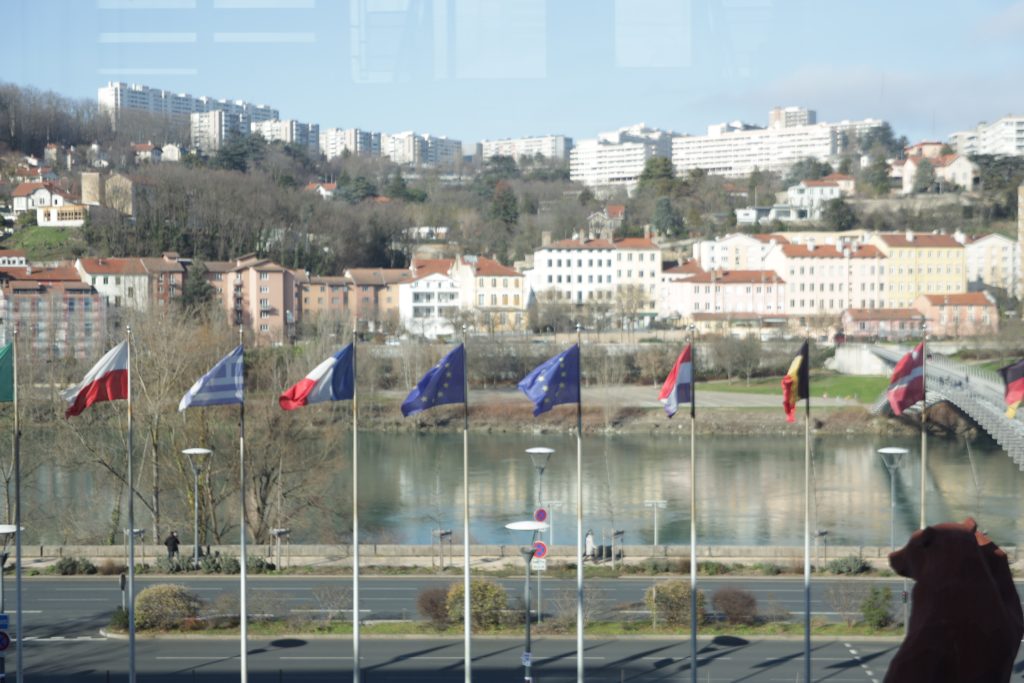
Despite being part of seven coalition governments, the Greens do not have a Prime Minister for their family. Yet, as Thomas Waitz, Co-Chair of the European Greens, mentioned in his opening speech: “The greens are focussed on keep expanding and fighting the perception that the green movement is only Western.” This expansionist strategy became visible since the Congress was the occasion for the greens to welcome Možemo! from Croatia and The Lithuanian Union of Democrats.
With polls indicating a potential decrease in Green MEPs, the congress’s theme “Courage!” reflects a determination to broaden the party’s appeal to new voters in the Baltics and Central and Eastern Europe. The event, the largest in the party’s history with over 1,200 attendees, serves as a rallying point to address these challenges head-on. Here are some of the highlights.
Frontline fighters against fascism
You’d think the main topic of an ecological event would be the climate crisis, and, of course, ecological concerns were central to political discussions. But the congress also tackled the rise of the right-wing movements and the normalisation of fascism. Speakers, including co-chairMélanie Vogel, underscored the Greens’ role as the intellectual force against political authoritarianism, stressing the importance of courage in the face of fear.
Thomas Waitz critiqued the fossil fuel industry’s support for authoritarian regimes, advocating for renewable energy as a means to combat climate change and political manipulation. The party aims to distinguish itself as a bulwark against populism, challenging narratives that paint green solutions as problematic.
A provocative thought was also thrown up several times in discussions, suggesting that all other political families have been open to cooperating with rising authoritarian voices. A few times, it was mentioned how, across Europe, more and more parties are changing their narratives based on the fears created by the extreme right. Greens will visibly try to position themselves in each national campaign as the last contingent against extreme populism.
Fighting narratives: The solution framed as the problem
Attending the Congress was a thrilling experience, considering that the day before the event, our team in Brussels witnessed a sea of tractors blocking the streets around key European institutions. Farmer protests have become a trend in recent months. Key European cities have paid attention to the loud voices claiming that the Green Deal has been detrimental to the food industry and the agricultural sector.
Among speeches, it was visible that the greens reject the idea that the solutions to the climate crisis are the problem itself. The green campaign will have to fight with a growing narrative that is endorsed by conservative parties where the ecologist movement is framed as utterly evil to fight against.
Many pointed out that the job of this campaign is to convince farmers and voters that green solutions are tailored for them and not for the big corporations owning the land. This is particularly a big task as the Greens are financially more limited than other political families (funding comes from how many seats you have in legislatures). Fighting the messages and interests of big corporations requires the courage the Greens are promising, but it also takes a lot of campaign resources. The good news is that the awareness is there for the national parties to consider this challenge.
A dynamic duo to lead the European campaign
The Congress served as a platform for the Greens to elect their lead candidates. Their policy is to have a male and a female candidate. This time, four candidates aimed to become the face of the movement in Europe: Elīna Pinto from Progresīvie in Latvia, Benedetta Scuder from the Federation of Young European Greens and the winners of the nomination: Bas Eickhout from the GroenLinks in the Netherlands, and Terry Reintke from the Bündnis 90/Die Grünen in Germany.
Reintke is the Co-President of the Greens/EFA-group in the European Parliament. She has been an MEP since 2014. Likewise, Eickhout, 47, also an MEP since 2009, has been working as vice-President of the Green/EFA-group in the European Parliament and vice-chair of the Committee on Environment, Public Health and Food Safety.
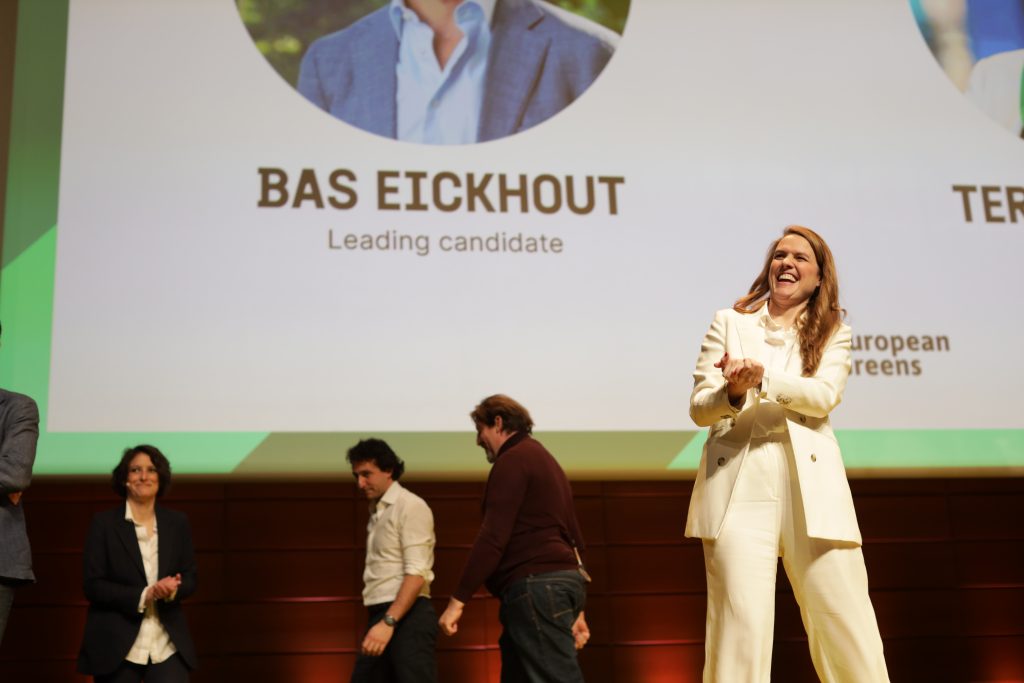
Reintke: “I am overwhelmed and grateful by the trust the European Greens put in me as their leading candidate for the European elections. I will fight for a diverse green and social Europe, a democratic Europe where racism and hatred have no place, where we set today the course for a just transition to a climate neutral industry for tomorrow. This is a decisive moment, together we stand up against the far-right, it will take courage, but we are stronger.”
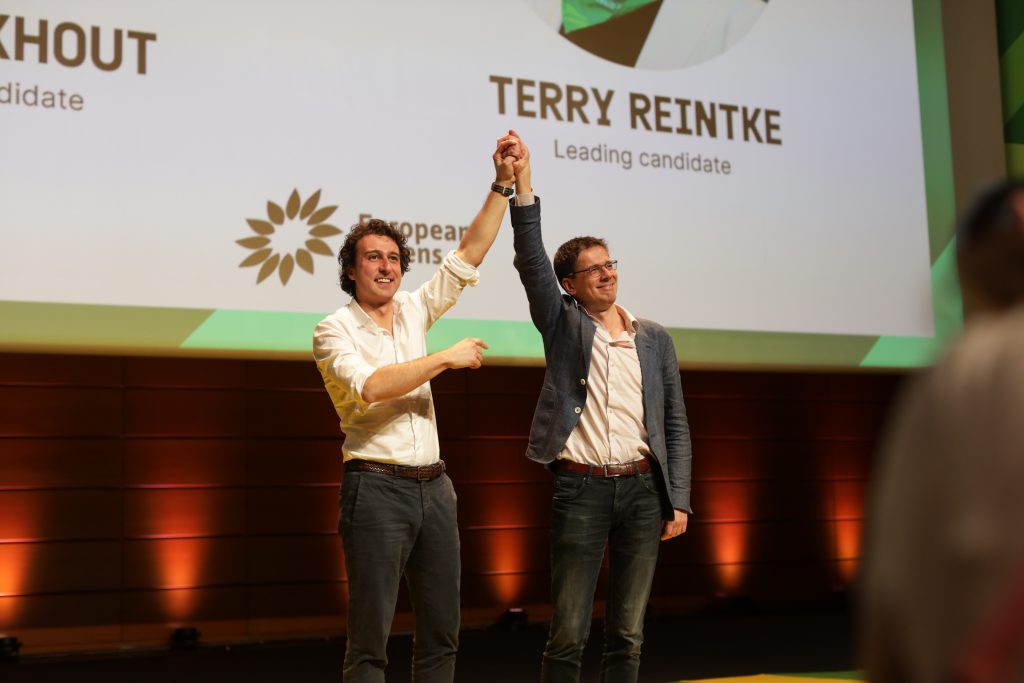
Eickhout: “I’m very honoured and excited to be one of the Spitzenkandidaten. These elections are going to be extremely important: our planet is rapidly heating up, a gruesome war is being fought on our borders, and inequality is increasing. At the same time, the far right is gaining popularity whilst only offering polarisation, exclusion, and false solutions. As Spitzenkandidat for the Greens, I will show that we are the antidote to the far right and show how a green, social and inclusive Europa is possible, for this we need to work together with all progressive forces across Europe. I’m looking forward to a campaign where we can make this happen.”
The campaign road ahead
With their manifesto and “Courage to Change” priorities set, the Greens are poised to lead the conversation on Europe’s future. As the campaign unfolds, PartyParty Attends will continue to provide front-row insights into these critical discussions.
The Greens are the first political party to have its manifesto approved by its delegates. You can access the manifesto here, along with the 11 priorities for its campaign, labelled “Courage to Change.“
Find below a gallery with some of the images we took from the event:
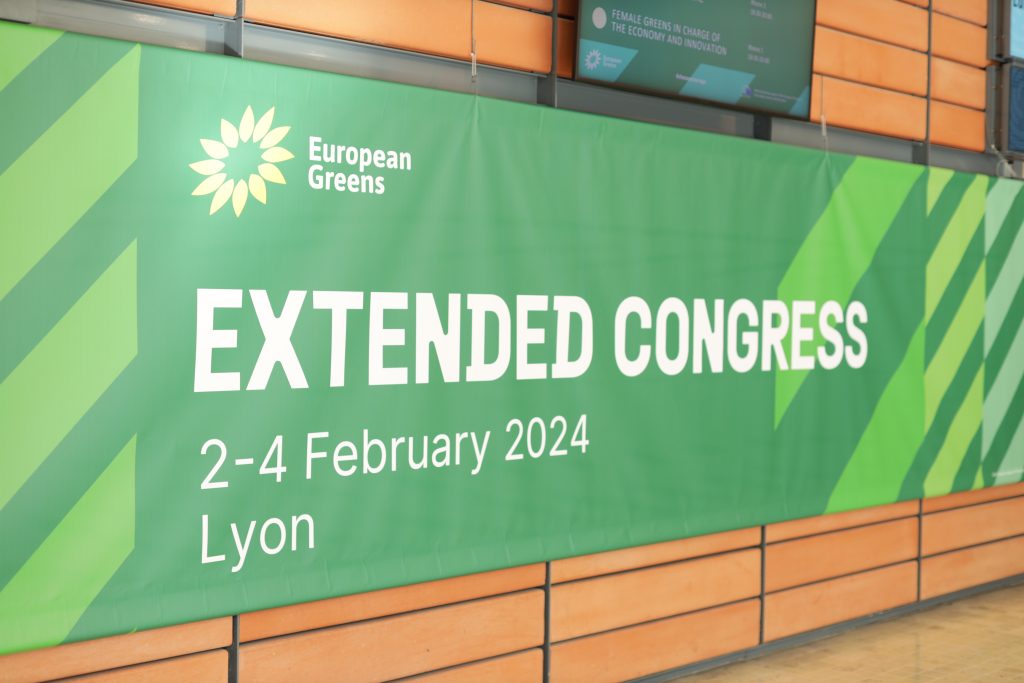
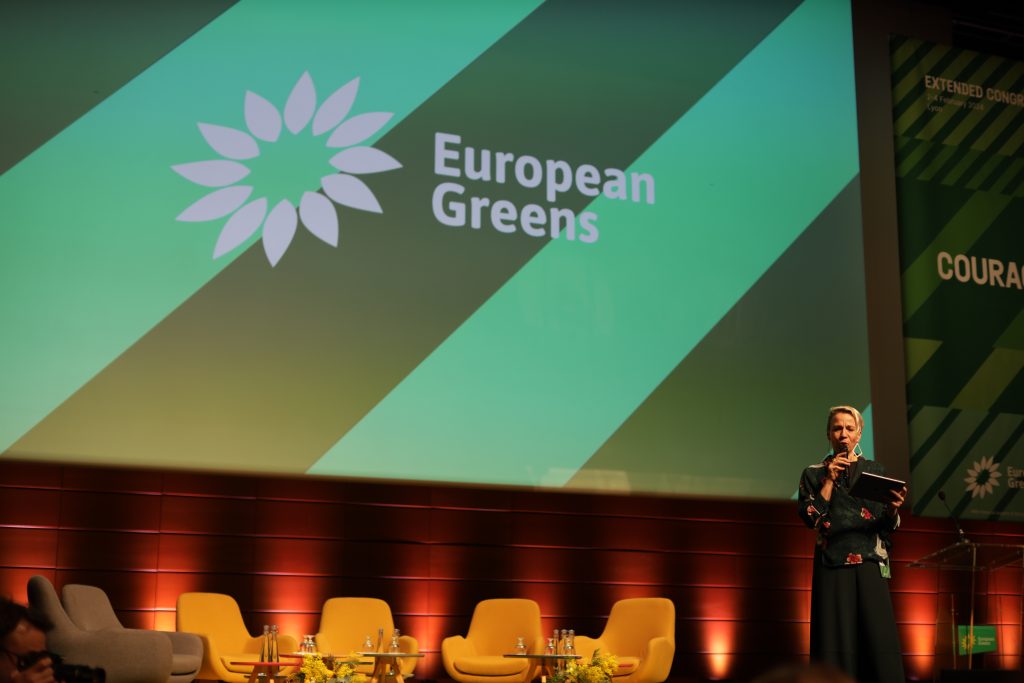
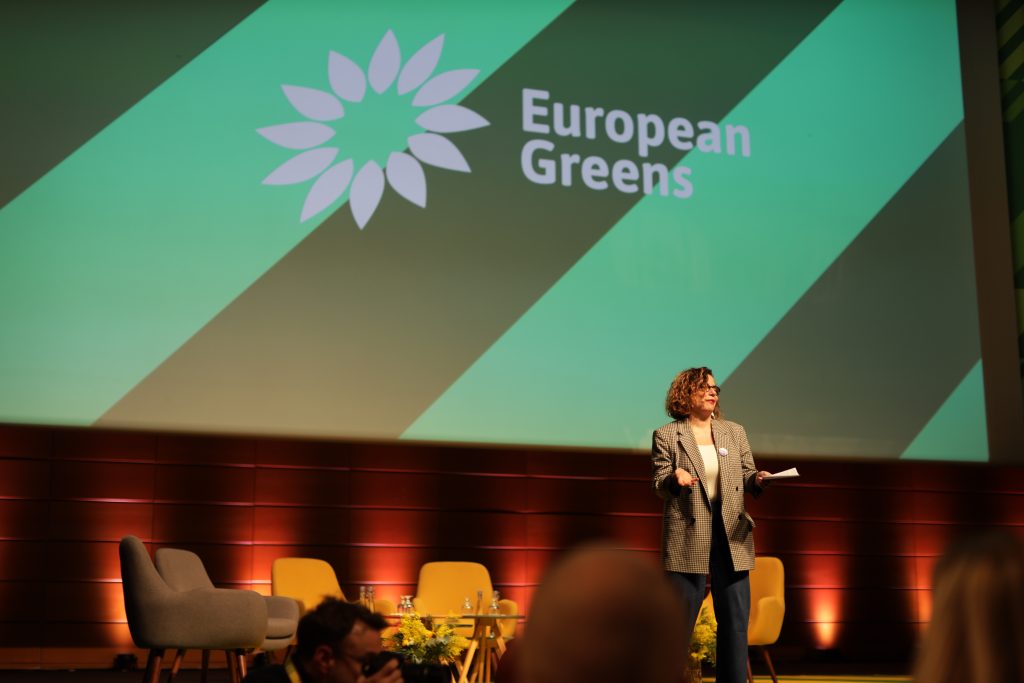
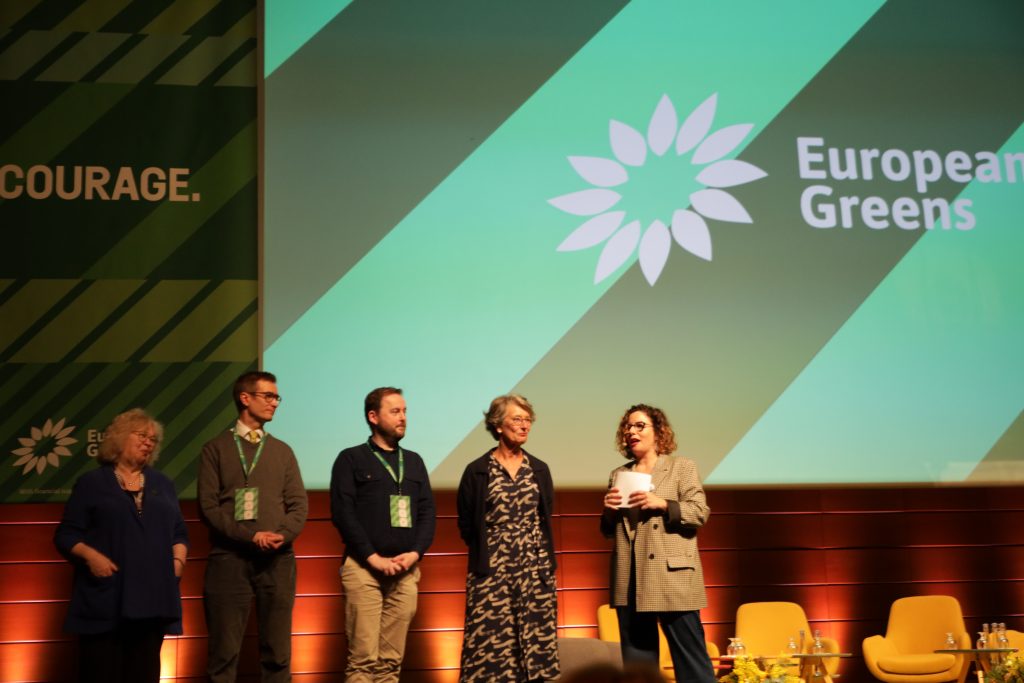
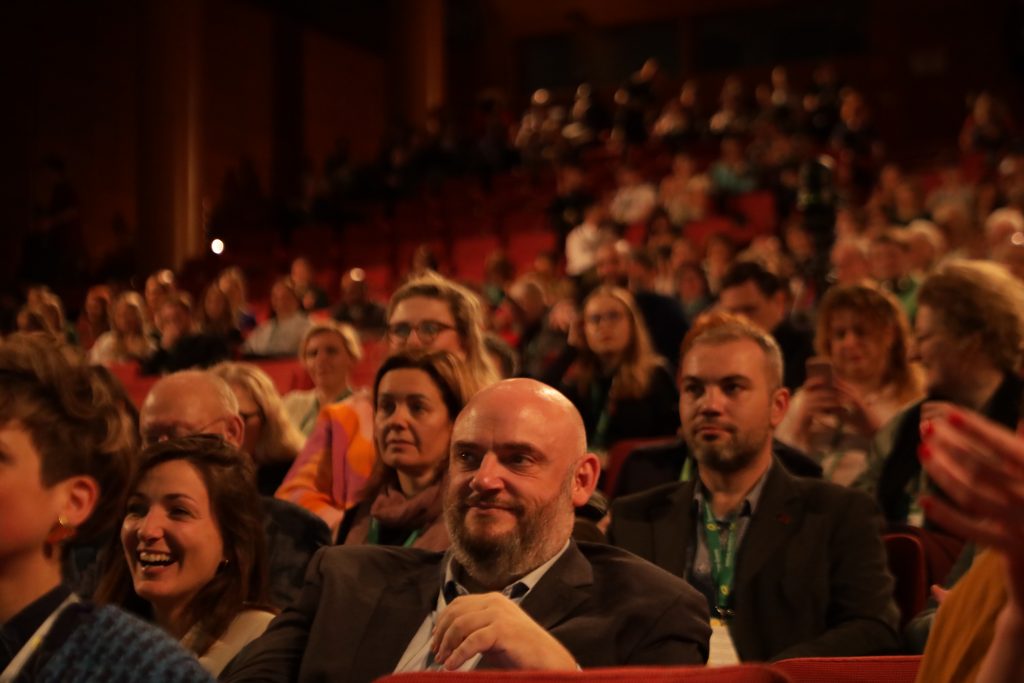
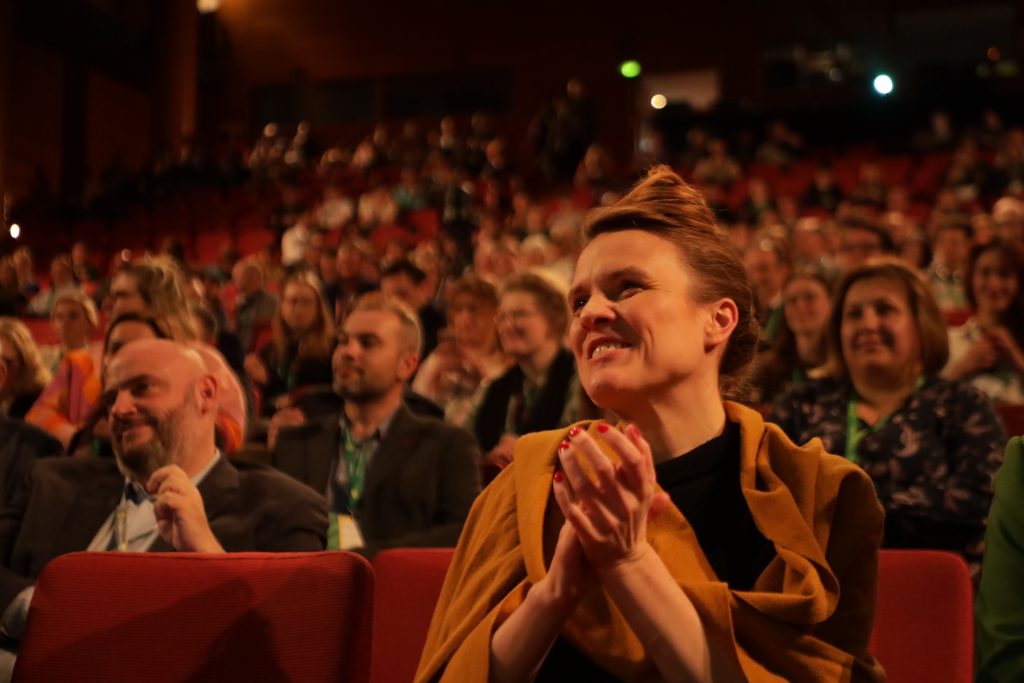
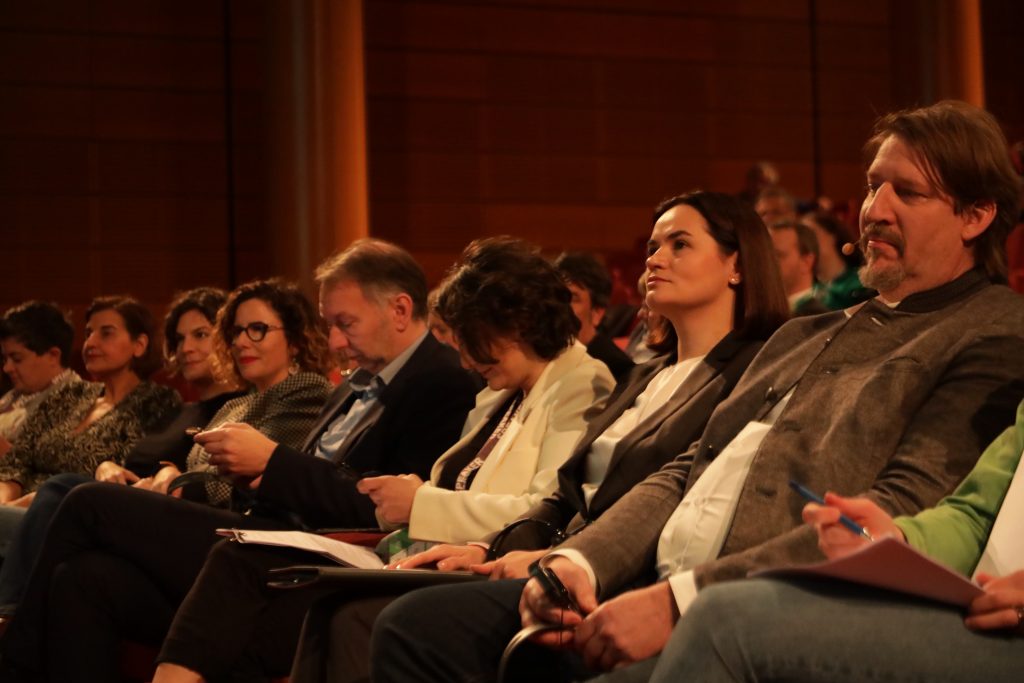
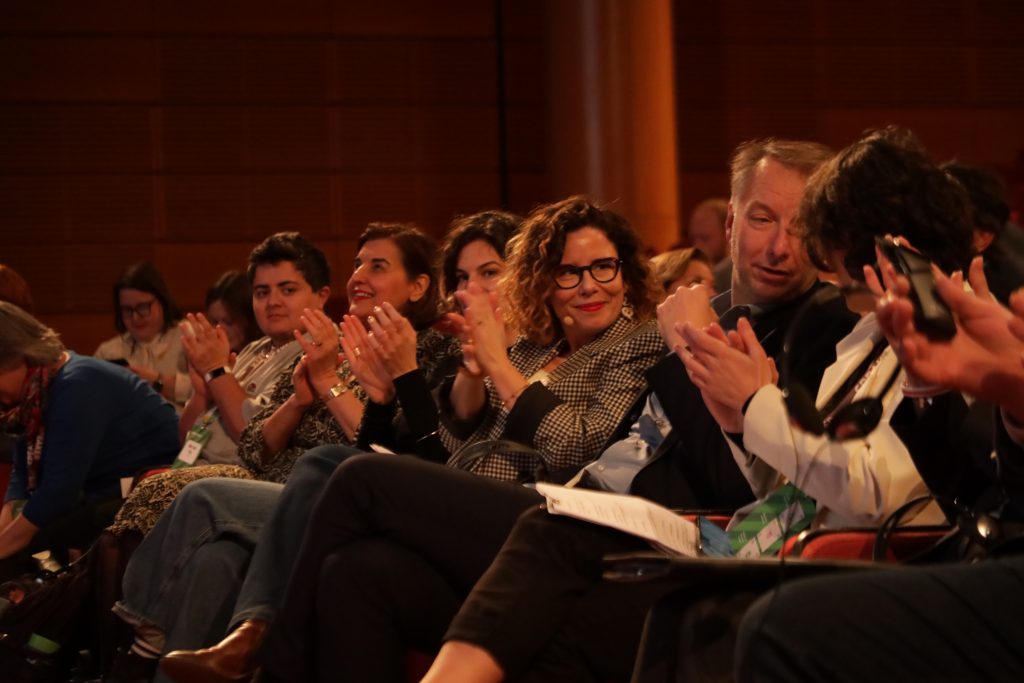
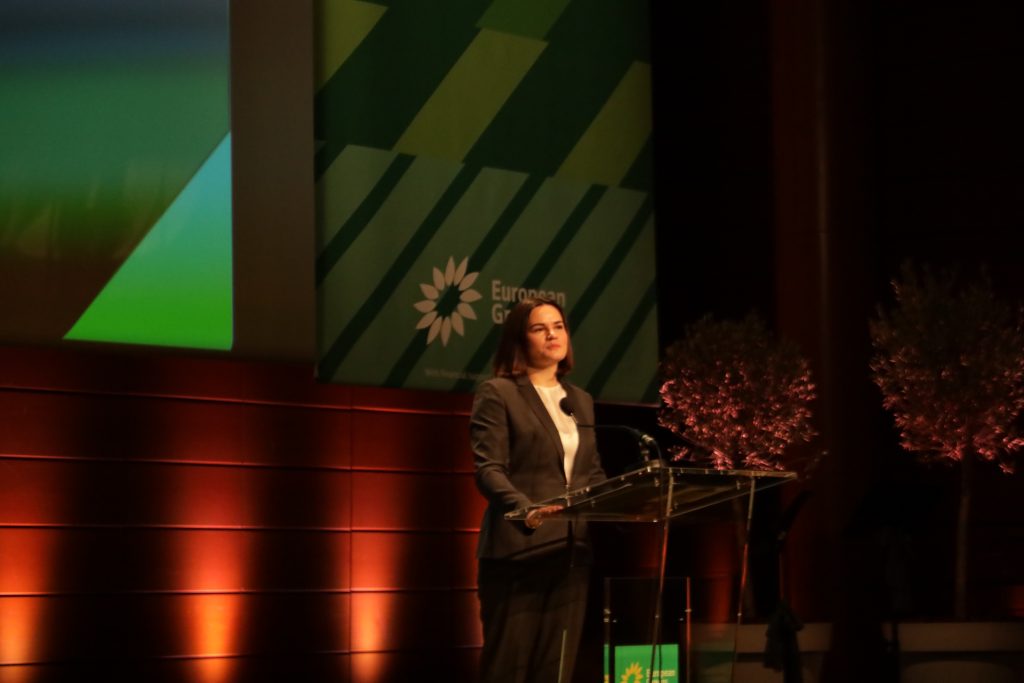
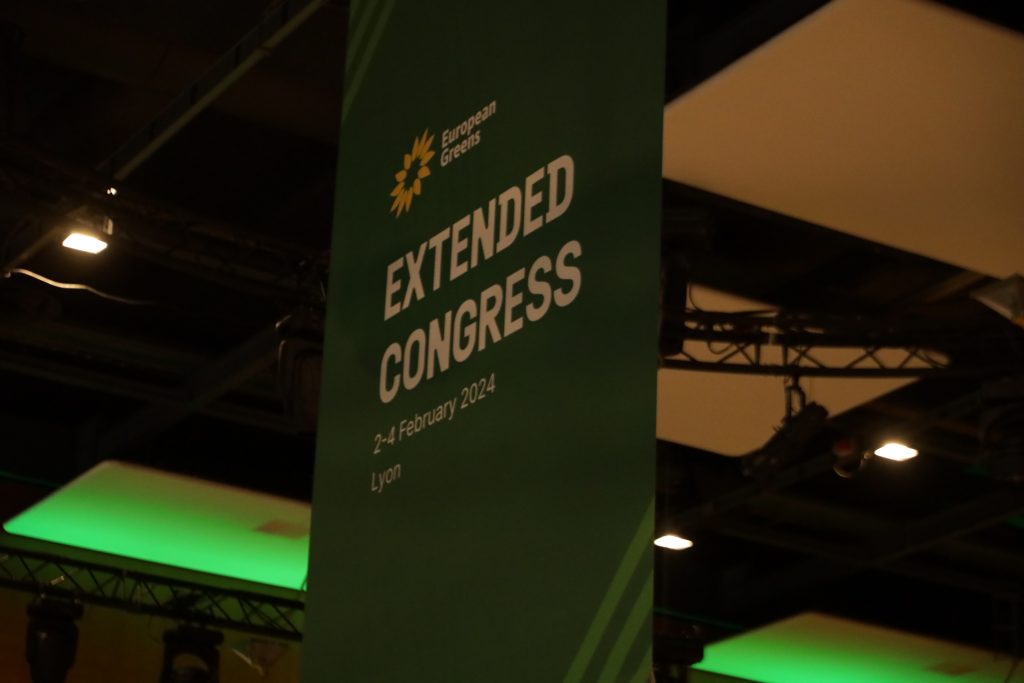
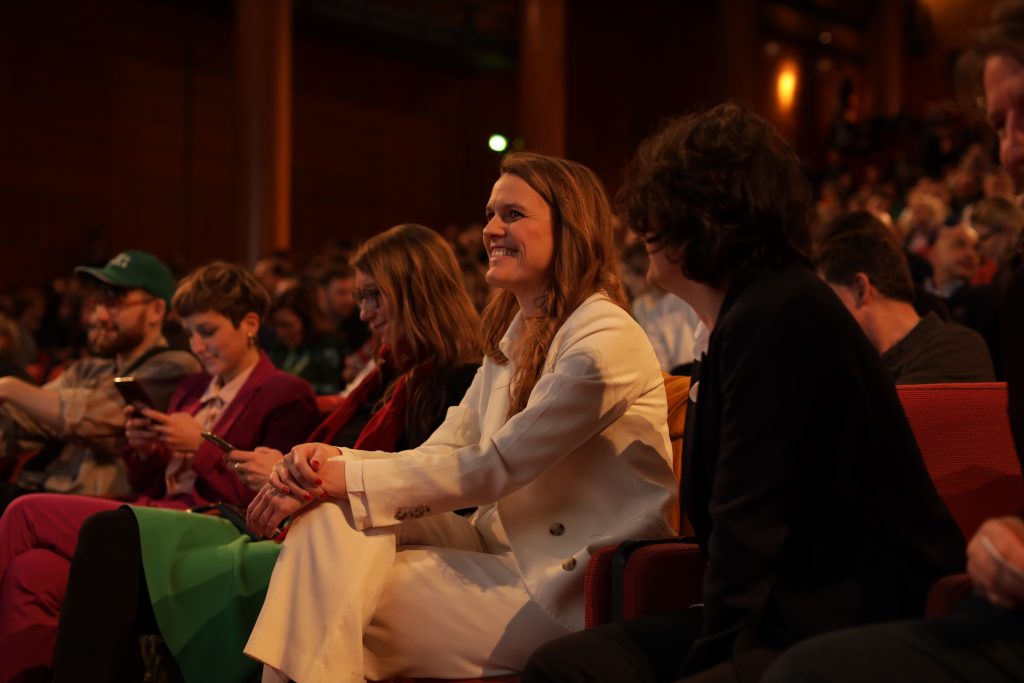
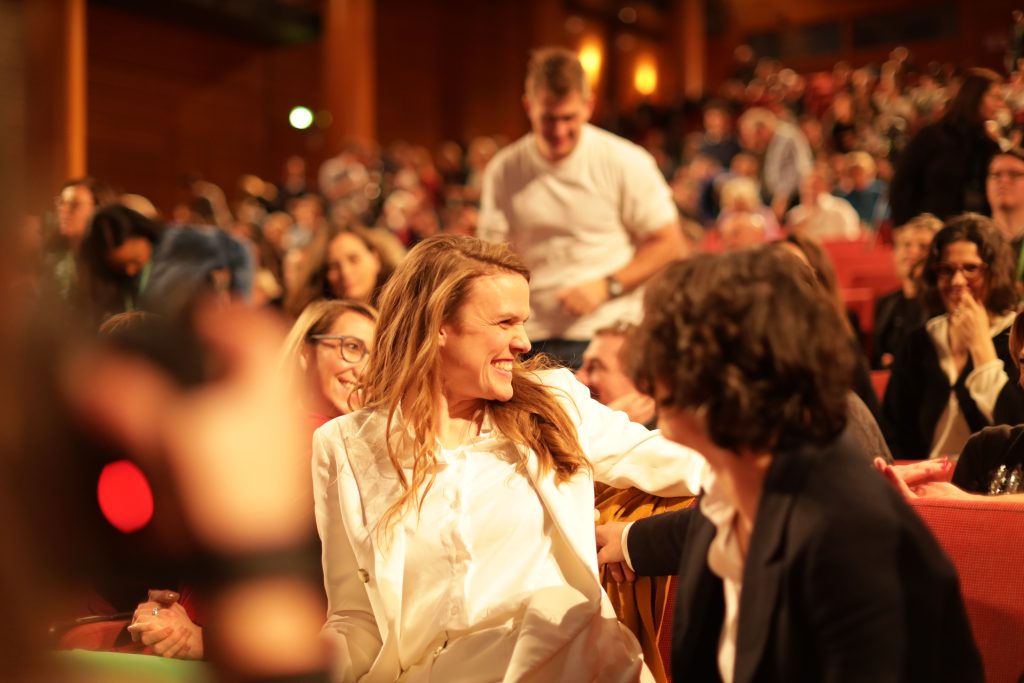
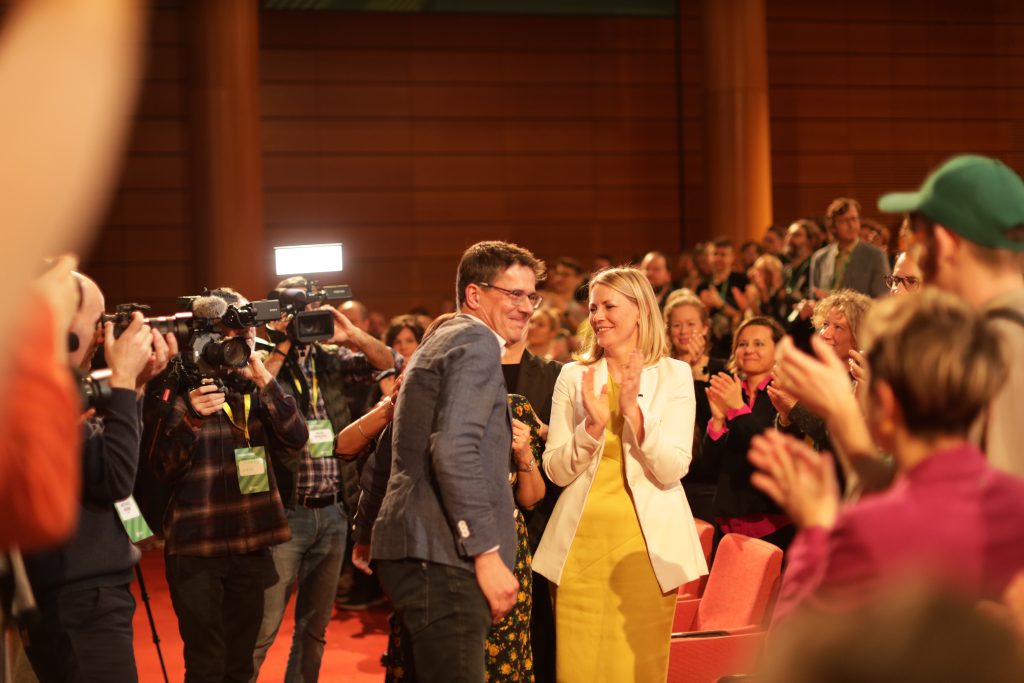
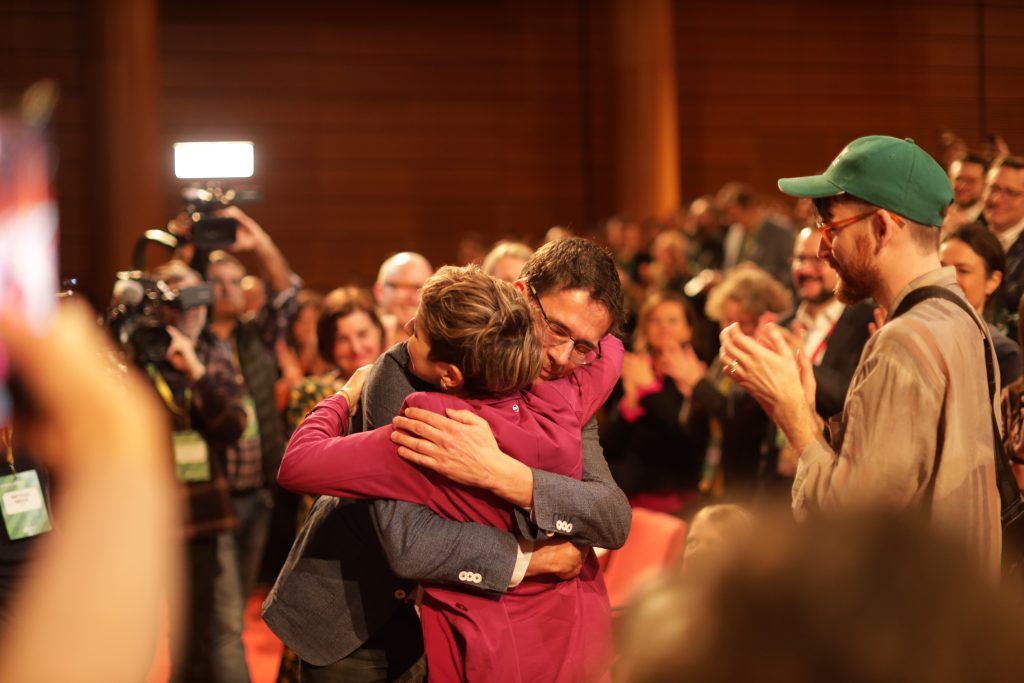
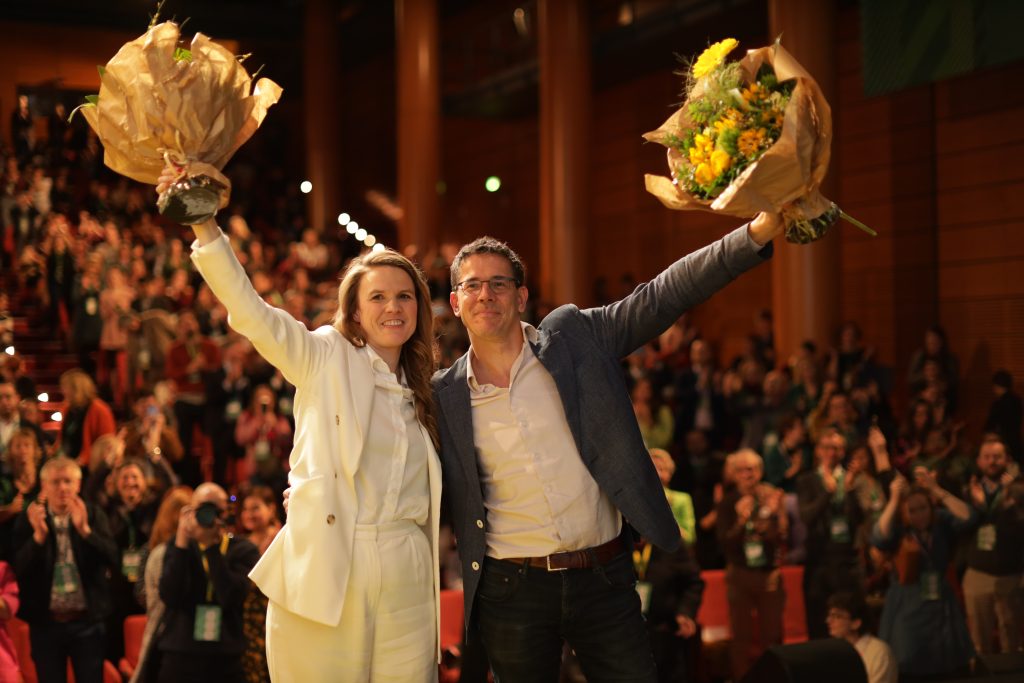
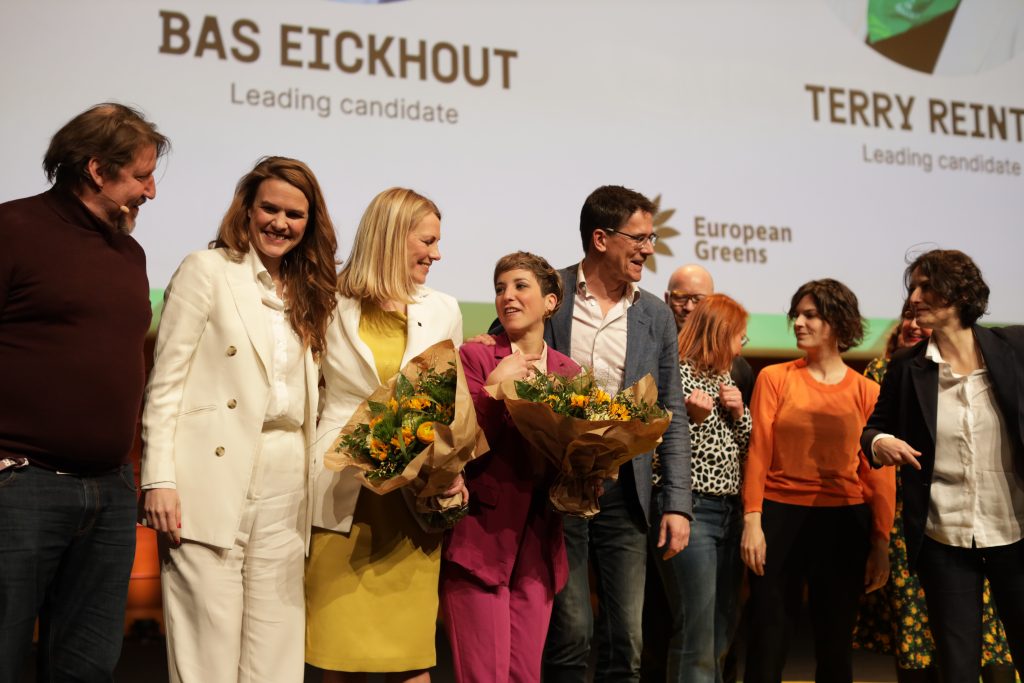
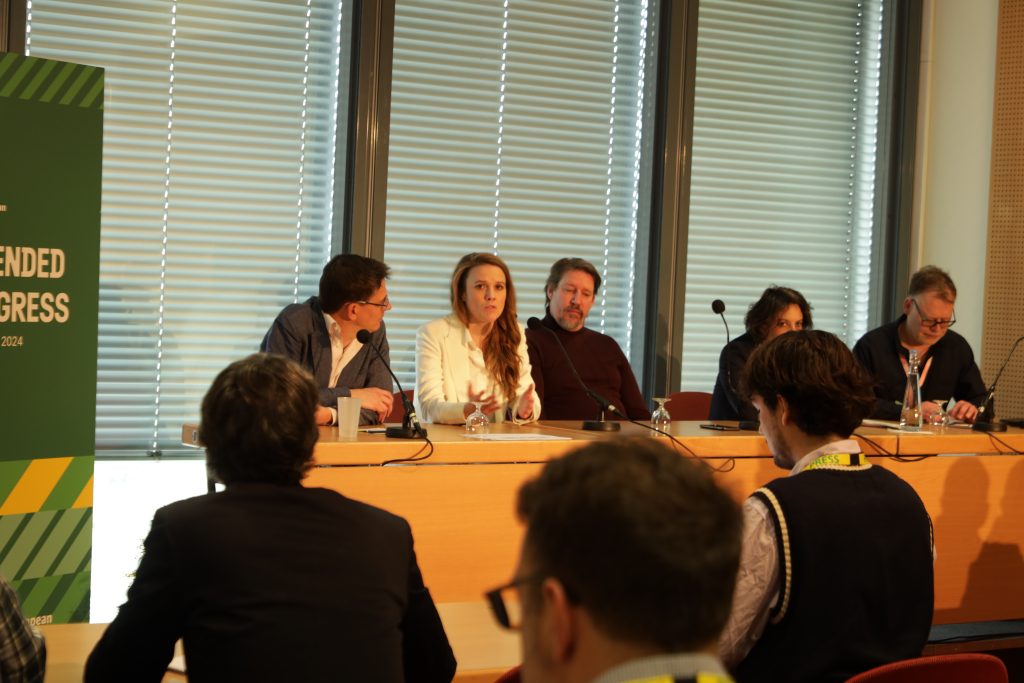
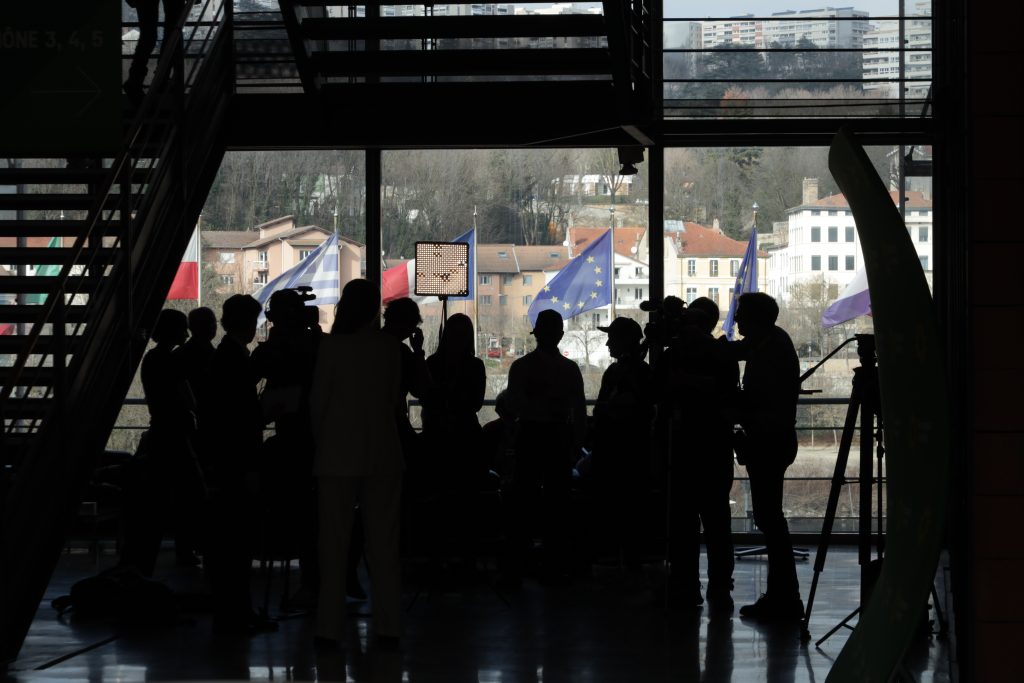
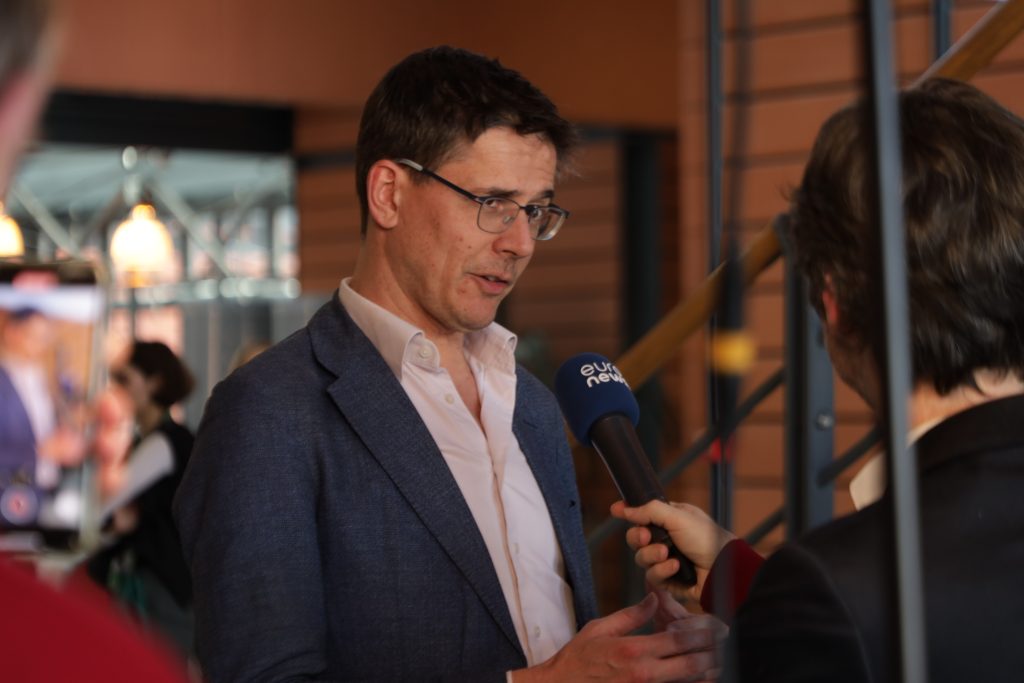
You can also access the official Flickr album of the party for more footage.
Stay tuned as this campaign kicks off and as we cover the upcoming events of the other political families in the upcoming months!


